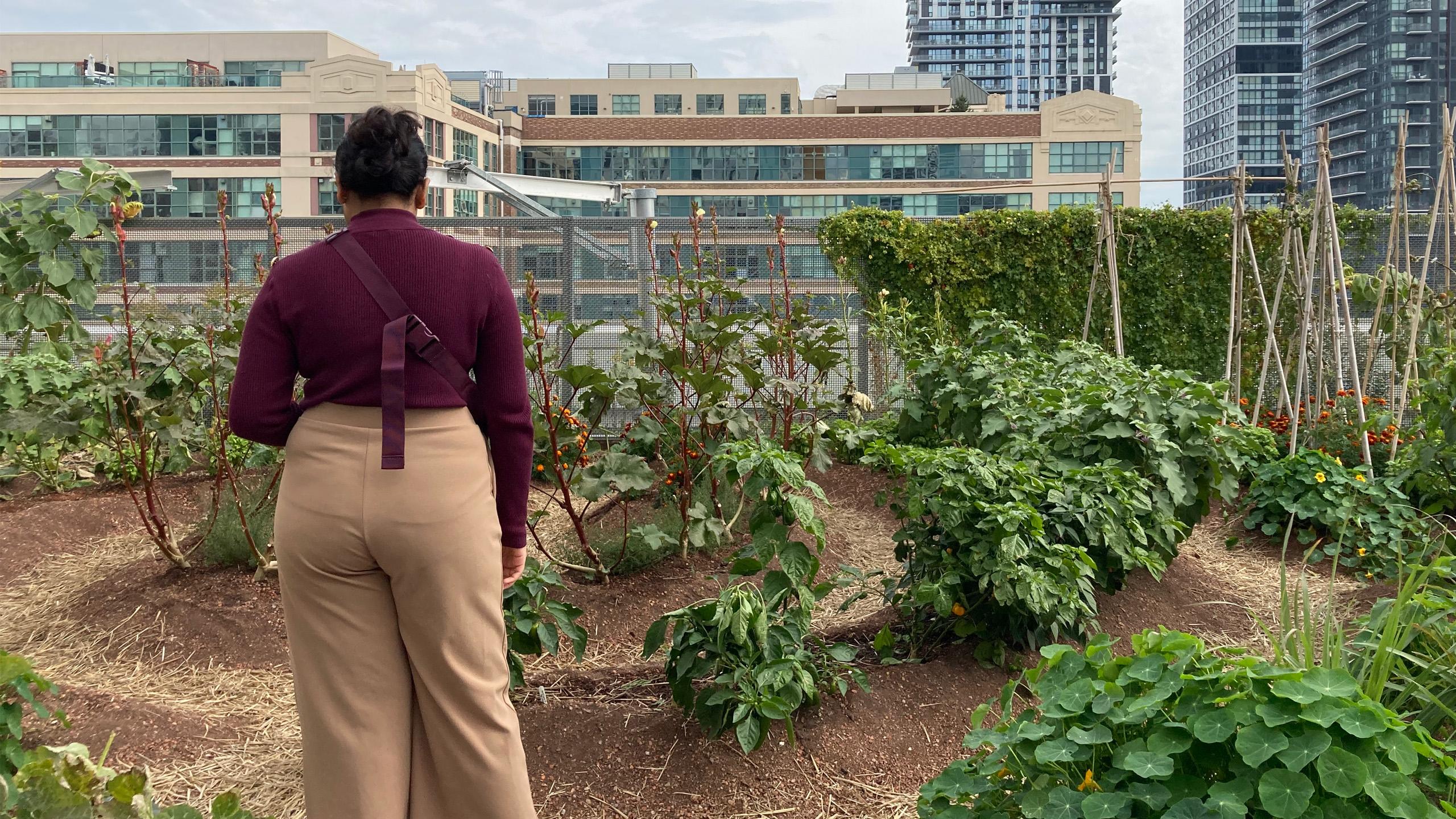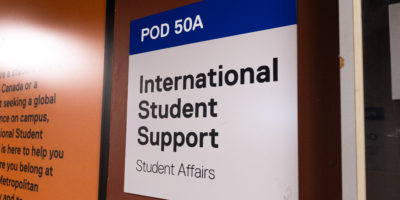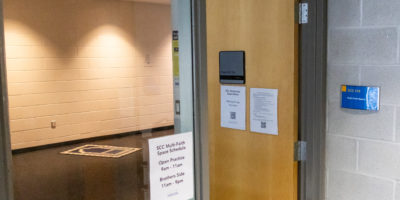By Nalyn Tindall
Toronto Metropolitan University’s (TMU) newest rooftop farm held a harvest party to commemorate the work being done to increase Black food sovereignty and the sharing of Indigenous teachings.
The party, held on Oct. 6, was dedicated to the Indigenous Foodways Program and Black Food Sovereignty Initiative. It also celebrated the launch of the new urban farm on the Daphne Cockwell Centre for Health Sciences (DCC) rooftop which was completed in 2021.
According to TMU’s website, the Indigenous Foodways Program and Black Food Sovereignty Initiative aim to engage with Black and Indigenous students at TMU and the broader community. Through education and programming, the cultivation and sharing of culturally significant foods is encouraged.
Sharene Shafie, the research coordinator with the urban farm, said the Black Food Sovereignty Initiative and the Indigenous Foodways program have bloomed within the first growing season.
“We’re so excited to welcome the community into this space for the first time in this capacity. It’s very exciting for us, we’ve never had this many people welcomed into this before,” she said.
The last harvest party took place in 2017 at TMU’s original rooftop farm located on the George Vari Engineering & Computing Centre according to Shafie. This year’s celebration brought together students, staff and community members to celebrate the new farm and bountiful harvest.
The event featured a seed-exchange, raffle, the opportunity to explore the farm and dishes from produce grown on site.
Jamaican-spiced pumpkin soup and beef patties were served alongside a three sisters stew of corn, beans and squash, with homemade bannock. Cedar and sorel iced teas were also served.
Shafie said the farm provides many benefits a regular green roof would not.
The roof has greater planting depth, supports more biodiversity and manages more storm water. She said the space allows the community to gather while producing food and connects people with their food system, nature and each other.
With the support of the university, the produce from the farm is donated, sold to students at a reduced price and sold at markets, said Shafie. “We’re always trying to serve our community, first and foremost,” she added.
She highlighted the importance of serving marginalized communities. “Being able to serve the communities that are most often affected by food scarcity, being able to serve our marginalized communities, it’s very important.”
According to TMU’s website, the Black Food Sovereignty Initiative aims to challenge systemic racism within food production and urban agricultural systems. Programs catered to Black students at the TMU-run initiative, including the Harvest Collective and Learning Circle, which focus on these values.
Nicole Austin, Black-led programs coordinator, said the four key pillars of these programs are: “food literacy, food and social justice, environmental stewardship and community healing.”
She also talked about the Learning Circle program, which invites the TMU community to come explore the farm and take part in workshops like experiential learning modules, where community members can participate in food production, processing and storage.
As part of the Learning Circle program, the farm features a variety of African crops, planted in a circle to welcome visitors to walk within the crops. “It’s just about celebrating our foods of the African diaspora,” said Austin.
She said through Black-led, Black-mandated and Black-serving initiatives, “we [the Black Food Sovereignty Initiative] can be a conduit for knowledge mobilization and inspire the Black community, Black youth, Black students, to actually see that they can create a healthier community and food systems that reflect them.”
The DCC rooftop is also home to the Indigenous Foodways program, which promotes Indigenous wisdom and traditional agricultural practices through knowledge exchange and community engagement.
“The Indigenous Foodways program is the first of its kind atop a university purpose built green rooftop farm…there are other green roofs, there are other Indigenous gardens, but this truly is the first of its kind,” said Samantha Williams, Indigenous-led programs coordinator. The DCC urban farm features a variety of Indigenous crops including a traditional three sisters mound, as well as a medicine garden. “My vision is that this rooftop will be the main attraction of the university,” said Williams.
The program showcases the possibilities of cultural significance and connection in an urban setting and also focuses on cultural significance connected historically to the land, Williams explained.
There are multiple ways students can get involved with the urban farm—from hosting volunteer sessions, to workshops and weekly field walks. There is also a summer apprenticeship program available through Career Boost.
While the farm is still new, Williams said it will continue to grow for years to come.
“We want the program to continue growing, we want to offer more workshops, we want to host more events, we want a lot more educational, cultural, educational aspects to the program.”













Leave a Reply